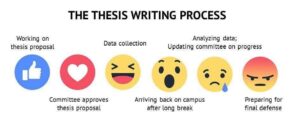Creating a strong thesis and dissertation paper does not have to be the impossible task many students think. There are five basics that you must keep in mind when you begin to tackle this massive research and writing assignment
1. Plan and Outline
Many students immediately begin writing as soon as they get the idea for a topic. While it is true that you need to make the best use of the time you have, you need to take the time to plan out your paper and make an outline. This will help you stay organized and will ensure you hit all of the important points you need to discuss in your paper.
2. Research
Perhaps the most important part of the thesis paper, aside from the writing itself, is the necessity to do good research. Unless you are writing a pure opinion piece, which is not at all advisable for a thesis paper, you will need to do research. And even if you are allowed to include some of your own opinion you can make your paper better by adding outside sources to strengthen your points.
3. Write and Rewrite
Even the best writers will need some time to write a good paper and hardly anyone can write a perfect paper the first time around. Especially with big research papers and projects like the PhD thesis paper, you will need to plan for time to do several drafts of your paper before it is finished and ready to turn in. You may need to reorder your points, add in more research points, or take out something that does not quite work for your topic. Giving yourself the time to do multiple of your paper is a good pay to prepare and will help you write a great final paper.
4. Edit
Once the paper is done and you are happy with the way it is laid out and what you have included, you then are ready for the last active stage and that is editing. Read over your paper to check for spelling, grammar, typos, punctuation, and other issues. If possible it is best to put the paper away and not look at it or work on it for at least a day before you edit it- this gives you a break and makes it easier to catch the errors and mistakes.
5. Wait and Learn
Once the thesis has been finished and your dissertation paper has been submitted you have to wait to hear what the final review is. While there is not much you can do during this time, once you do know the results you can be proactive. Learn from any mistakes, take the instructors comments to heart, and work on making the next paper even better!

